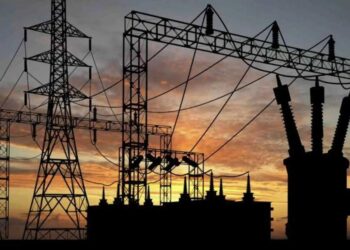
… Escravos bombing hurts negotiations, 2017 budget projections and market share
The bombing of Chevron Escravos export pipeline in Warri, Delta State cast doubts on Nigeria’s ability to maintain production output it recently negotiated with the Organisation of Petroleum Exporting Countries (OPEC) in Algiers that could help fund the 2017 budget.
At the last OPEC meeting, members agreed to reduce output to a range of 32.5-33.0 million barrels per day from a current output estimated at 33.24 million bpd to reduce a supply glut that has cut prices by more than half of 2014 levels.
Nigeria and Libya were allowed to maintain output volumes projected at 2.2 million bpd and about 500,000 bpd respectively. Nigeria currently produces 1.9 million bpd but renewed attacks may threaten market share.
Nigeria secured exemption from supply cap on militant attacks but was rudely jolted when the Niger Delta Avengers struck again.
Analysts fear this may trigger a rash of attacks on oil and gas infrastructure as militant groups struggle for prominence. It could also scuttle talks scheduled for October 31 between the Nigerian government and militant groups and further endanger Nigeria’s 2017 budget projections.
“Despite several attempts by the government to engage in peace talks with the region’s militant groups, a lasting peace or ceasefire has not been negotiated, and little or no progress has been made to meet the NDA’s submitted demands,” said Luke Doogan, Africa analyst at West Sands Advisory.
He further said, “According to the militants, the attack was a “wake-up call” for the government and a response to the alleged intimidation of local populations by state security forces.”
Sources say the affected 439 kilometre Escravos-Lagos Pipeline System (ELPS) which supplies gas from Escravos region of Niger Delta area to Egbin power station near Lagos, is managed by the Nigerian Gas Company Limited.
The Chevron operated Escravos Gas Plant within the terminal has a capacity for 680MMcf/d . Other pipelines in the export terminal include Odidi gas plant operated by Neconde, Utorogu gas plant run by NNPC and Seplat’s Oben gas plant.
If repair works are not completed immediately to the critical infrastructure, power supply may be threatened as it may constrain gas supplies. The militants have threatened to disrupt repair work.
A competition for supremacy between the Niger Delta Greenland Justice Mandate (NDGJM) who has rebuffed talks and has been actively carrying out attacks and the Niger Delta Avengers who has cooled off on attacks may yet become tricky to handle.
“The NDA may be scared of losing its title as the Delta’s most powerful militant group, and the most recent attack may have been designed to remind the government and Nigeria and general that it is still capable of launching significant assaults. Accordingly, there is the danger that the NDA and the NDGJM may engage in a spate of tit-for-tat violence as they battle for superiority, and it is essential that the Abjua government seek to negotiate with the NDA post haste,” said Doogan.
Nigeria’s 2017 budget is predicated on oil benchmark price of $42.5 per barrel and production volume of 2.2 million barrels per day, in a low price environment where IOC’s are divesting from Nigeria and new investments have been too few and far between for over 10 years.
“There has not been any significant investment in Nigeria’s oil exploration in the past ten years. We are fast depleting our oil reserves and are not trying to explore new fields and attacks continue to threaten production,” said Isreal Aye, oil and gas consultant and managing partner, SterlingPartnership.
This latest attack questions the efficacy of so-called shuttle diplomacy of Ibe Kachikwu, minister of state for petroleum resources to the creeks as stated by the ministry’s spokesman.
“Ibe Kachikwu has given example of what he intends to do in this regard by his shuttle diplomacy in the creeks of the Niger Delta, meeting with chiefs, youth and elders of the region pleading for peace and giving this government the chance to reverse decades of neglect,” stated Idang Alibi, director, press and Public Relations, Ministry of Petroleum Resources.
The first item on the Kachikwu’s 7Big wins (the seven major expected outcomes of an ambitious seven short and medium term priorities aimed at growing Nigeria’s oil and gas industry between 2015 and 2019) is improving security and ensuring environmental safety in the oil producing areas.
Also the attacks add to the environmental degradation in the Niger Delta which the government has committed to handle.
Akinbode Oluwafemi, environmentalist and deputy executive director, Environmental Rights Action says a solution must be urgently found for the Niger Delta problem.
“The Federal government must create enabling environment and provide necessary support for the people to reduce these attacks,” he said.












